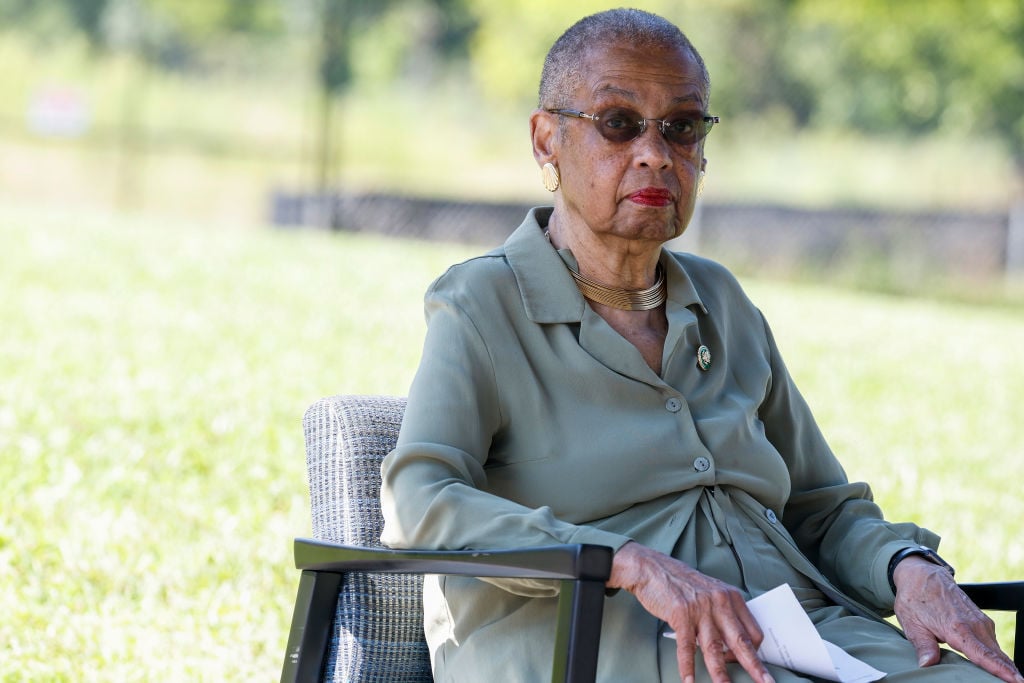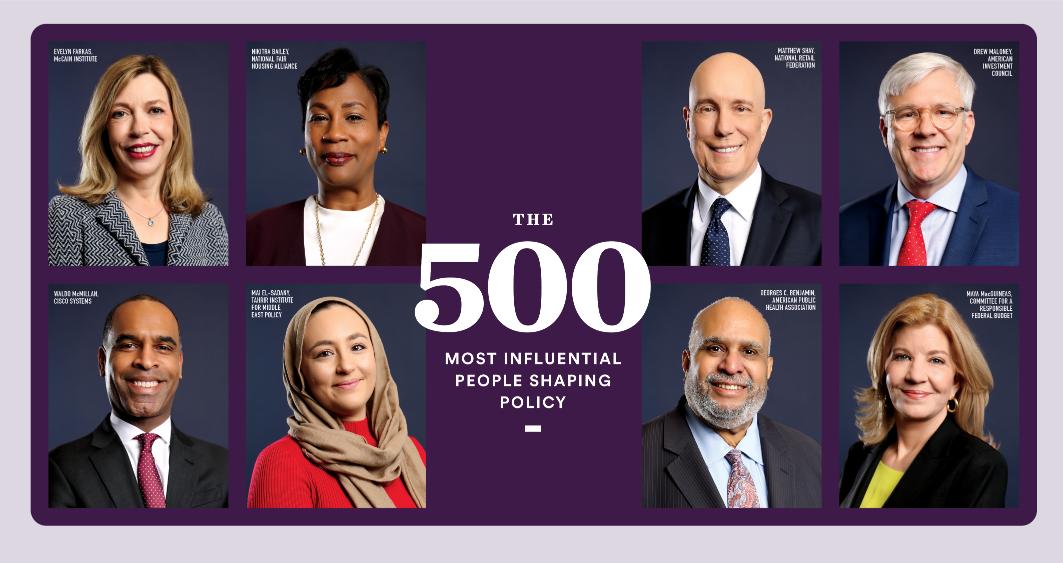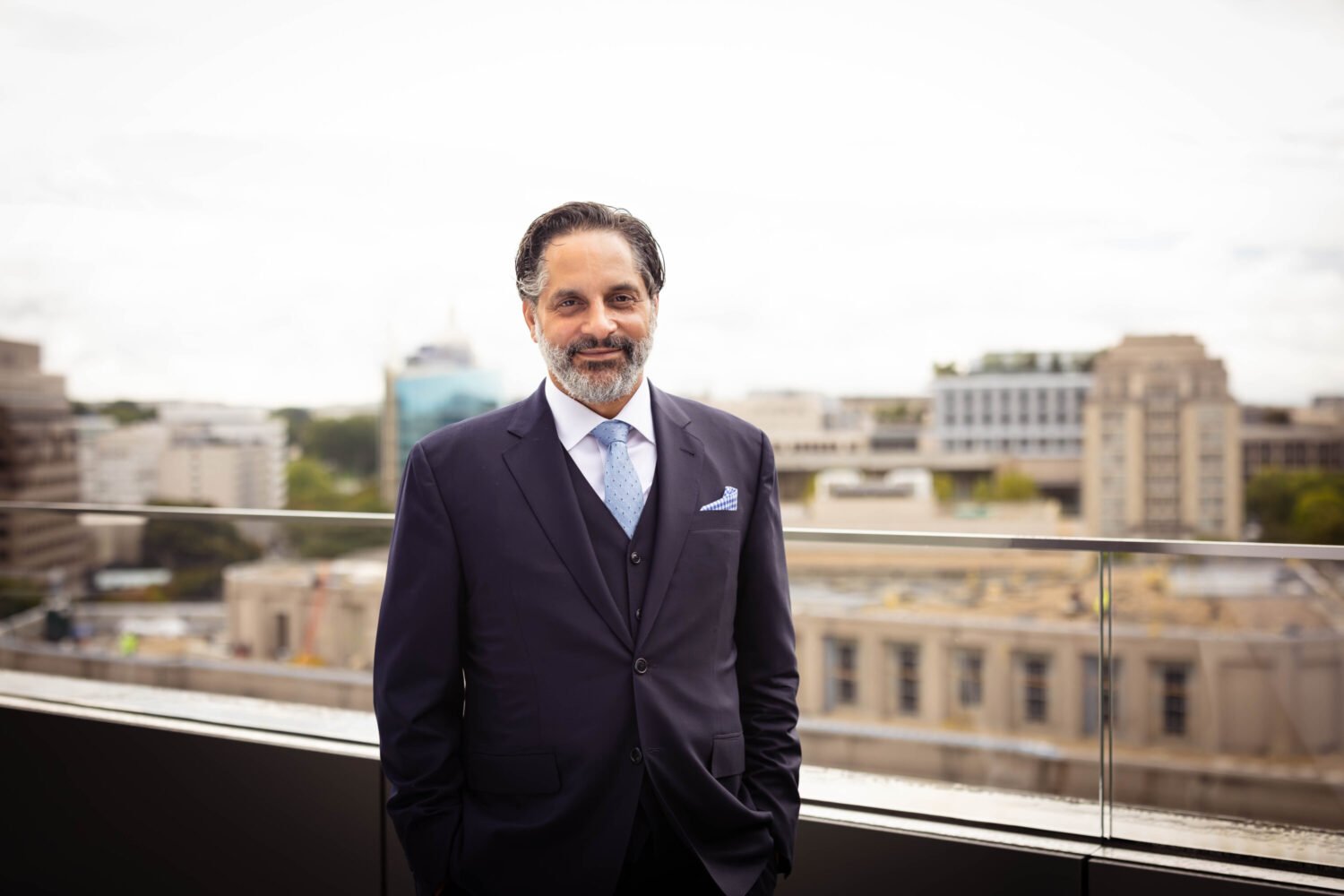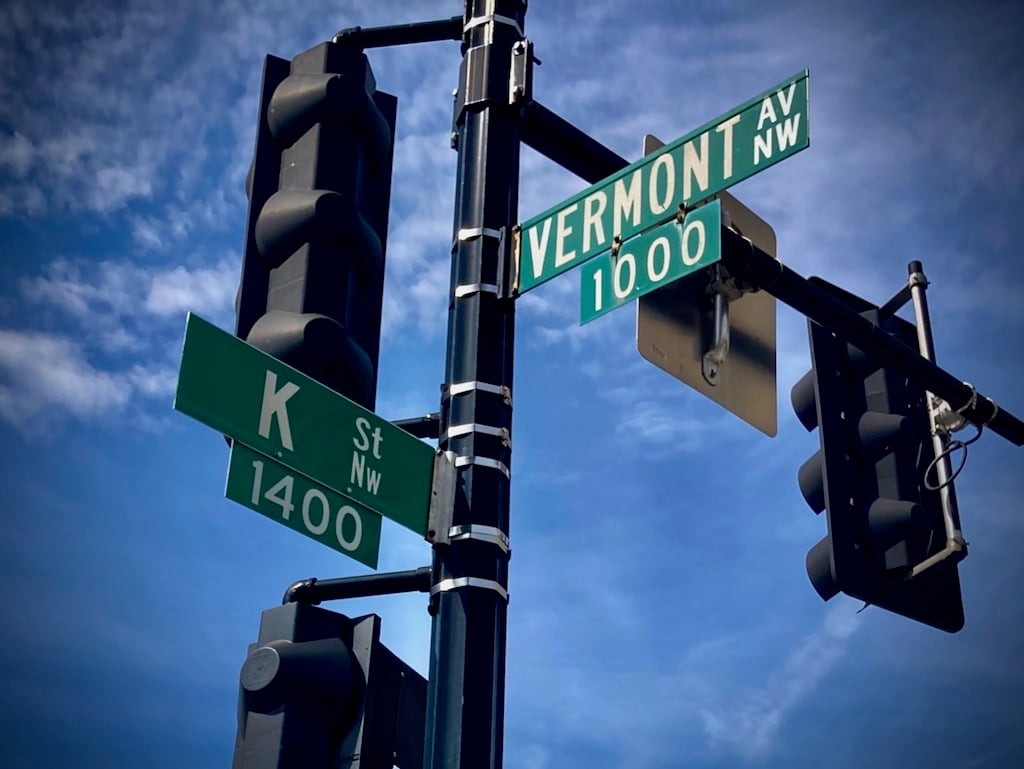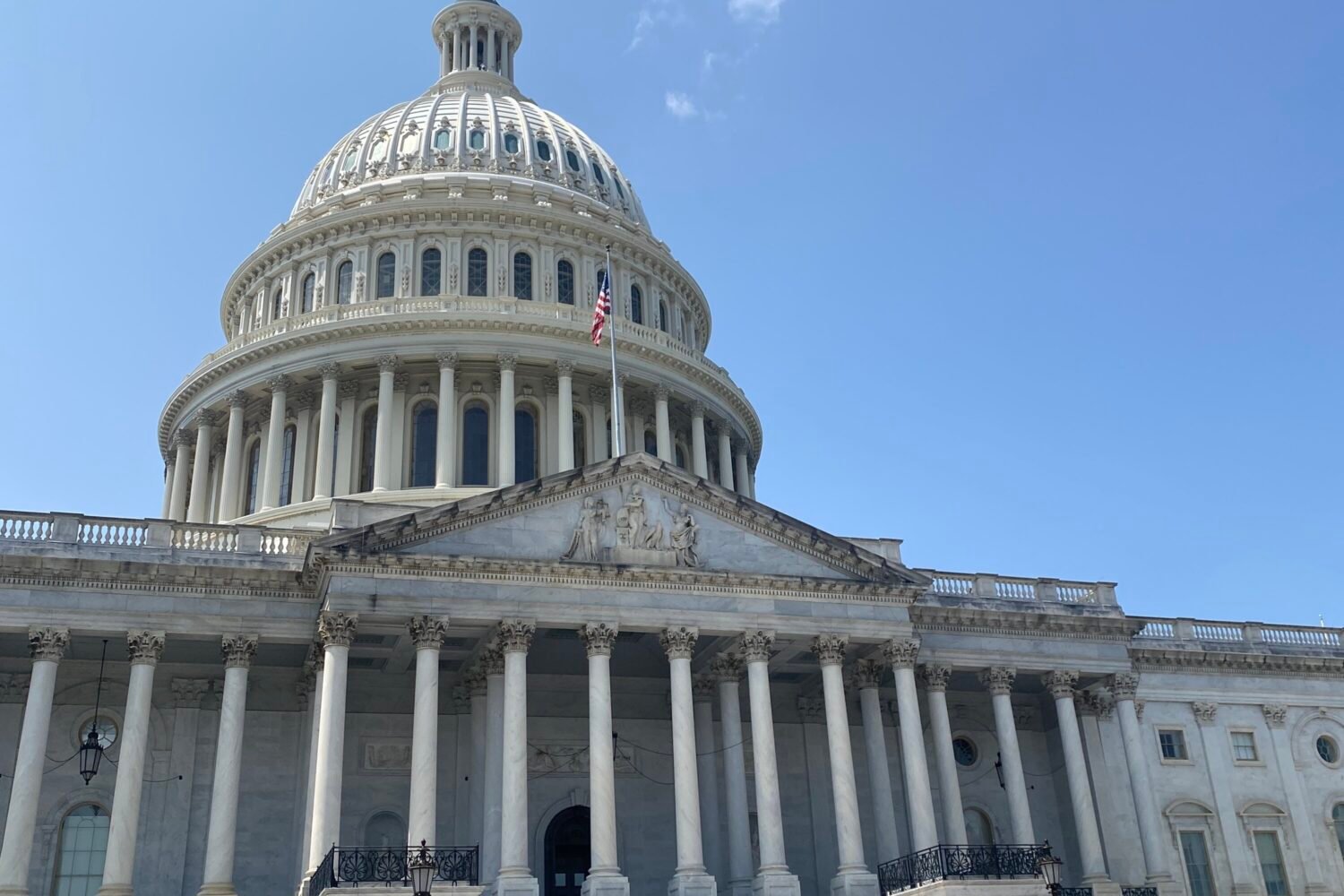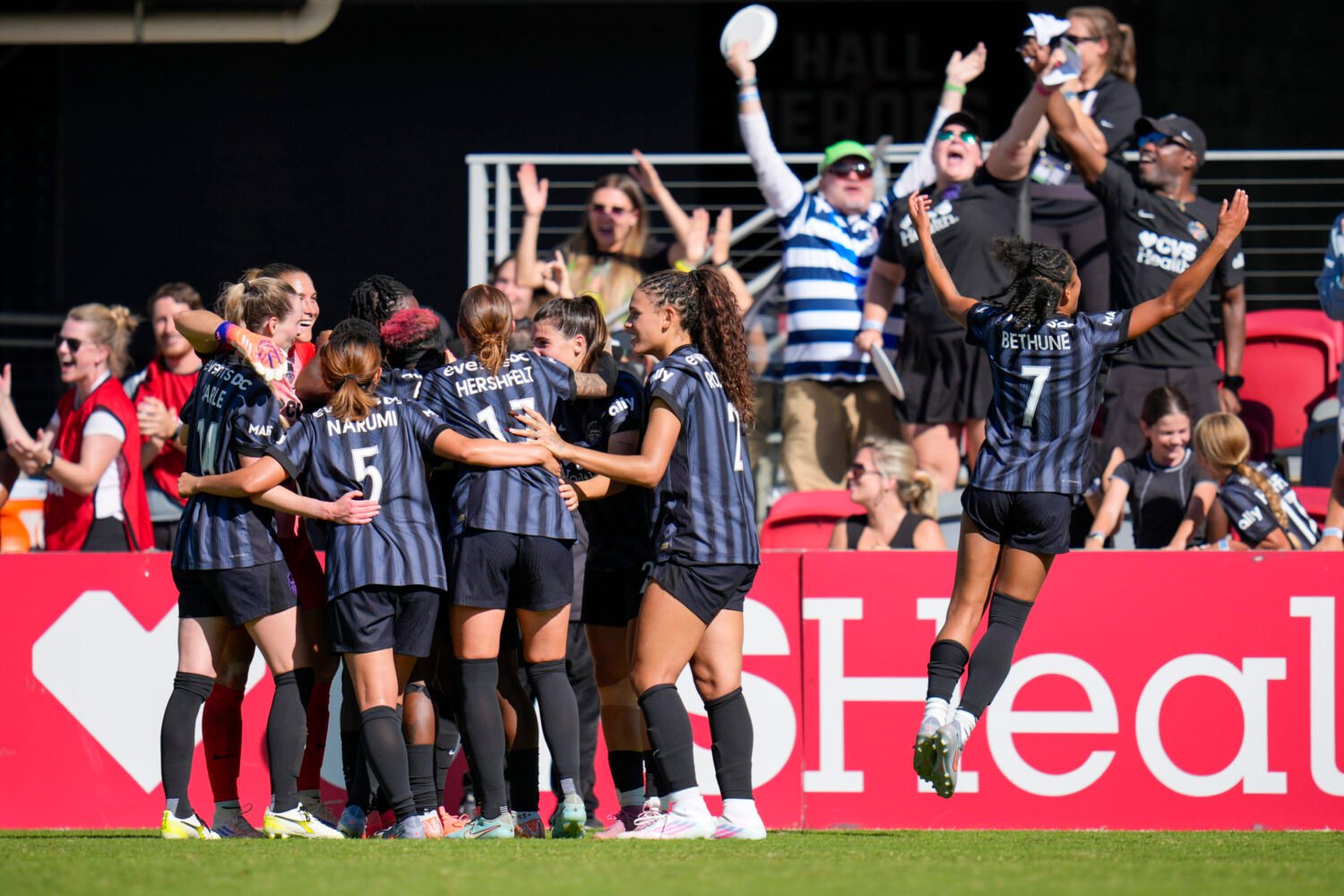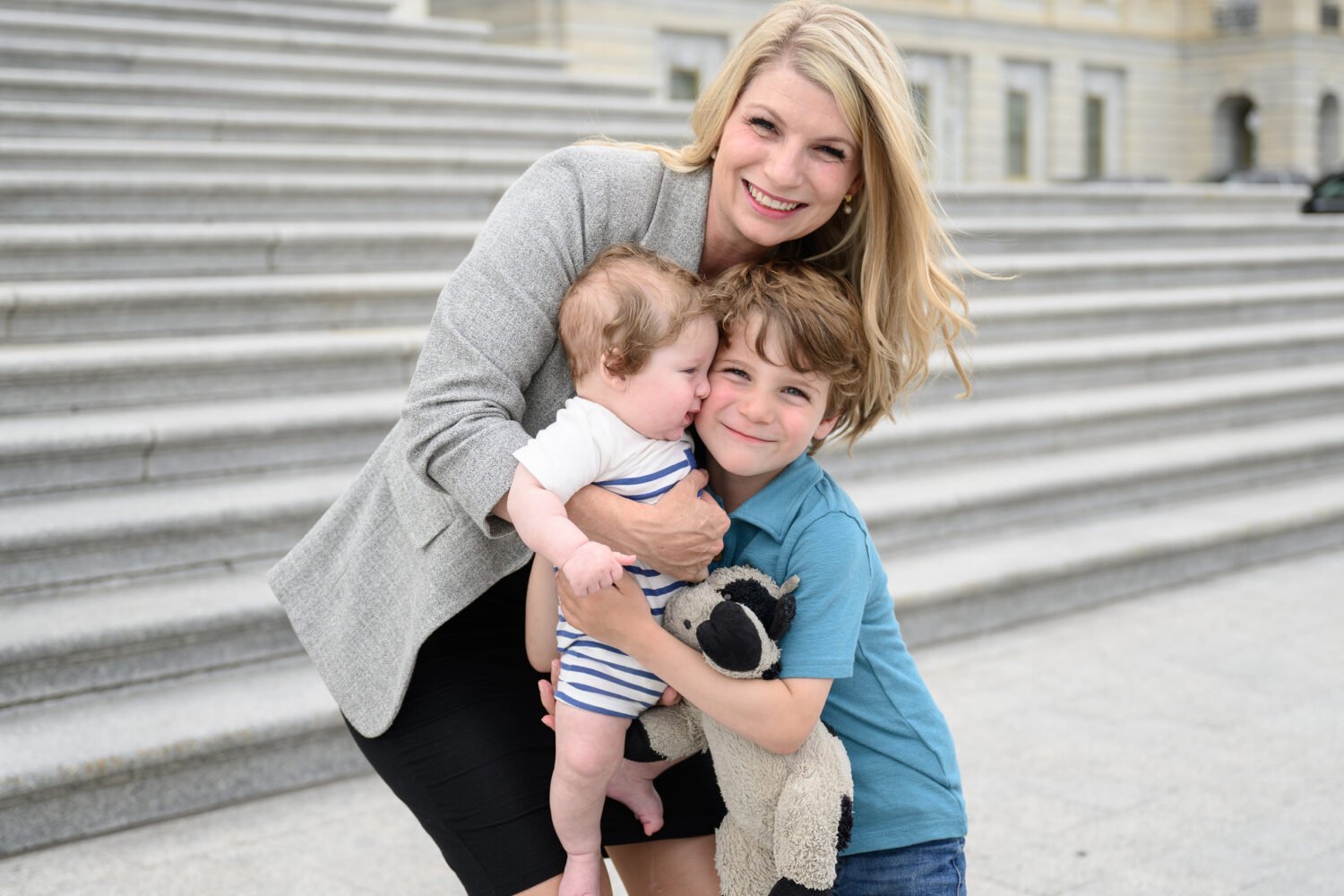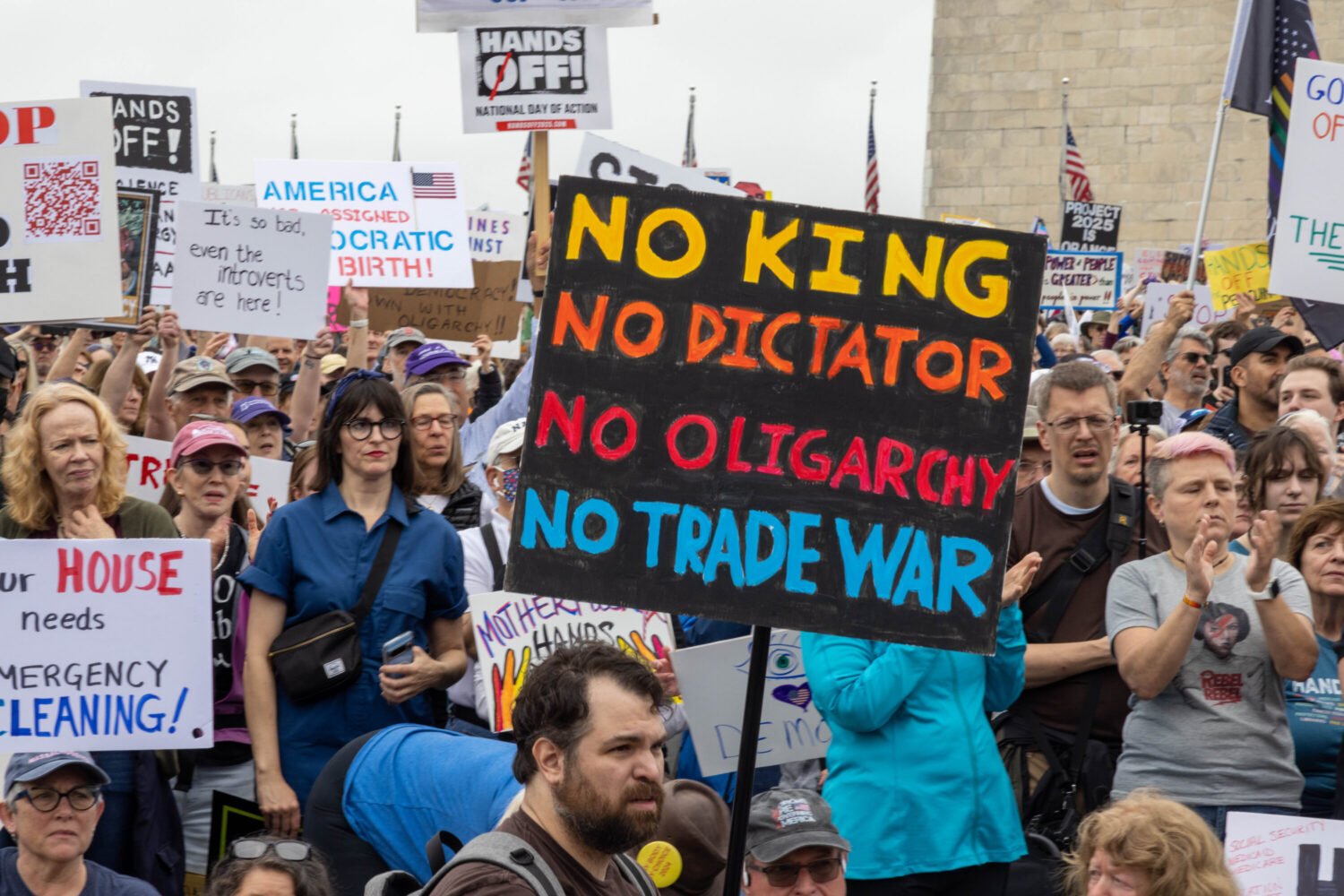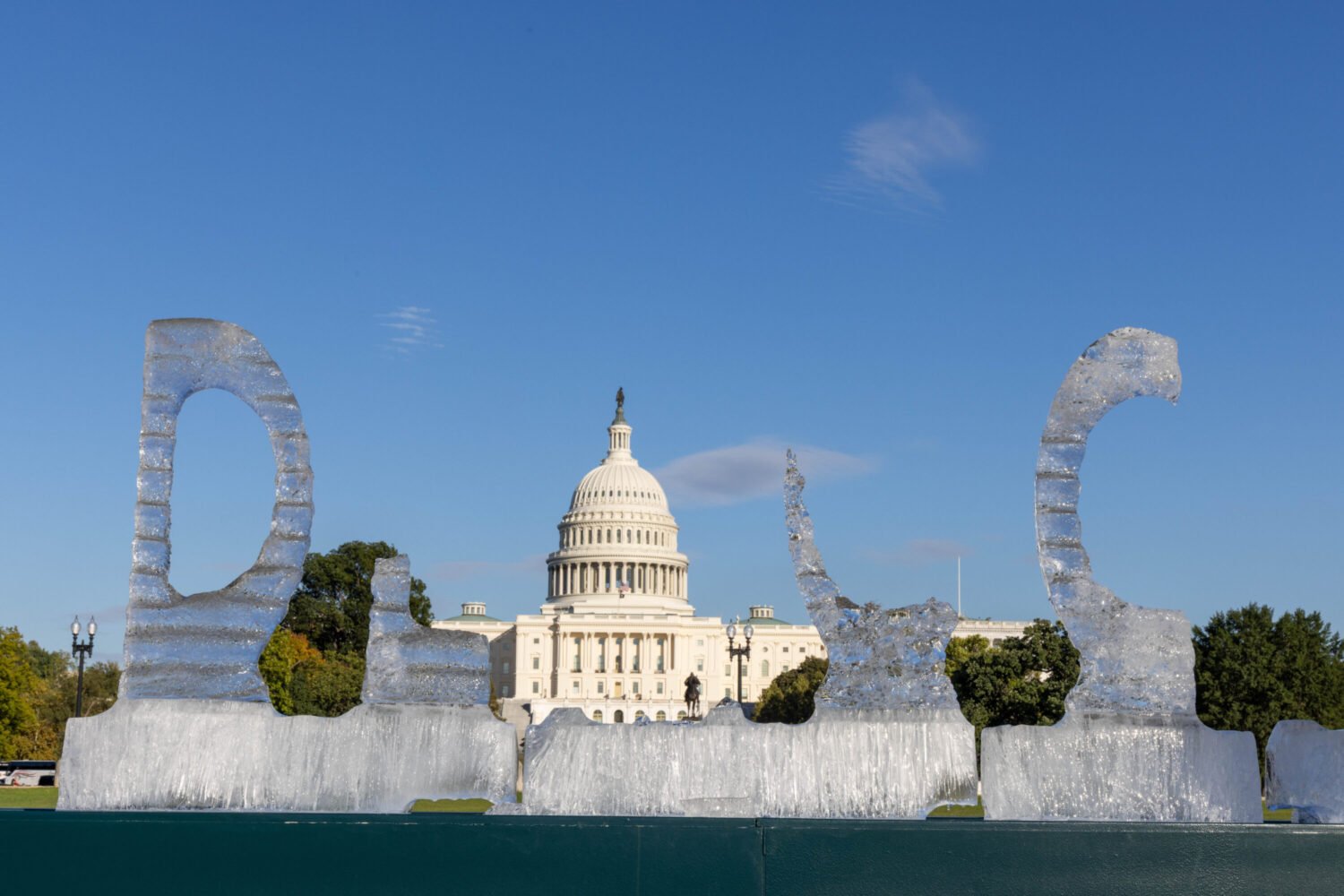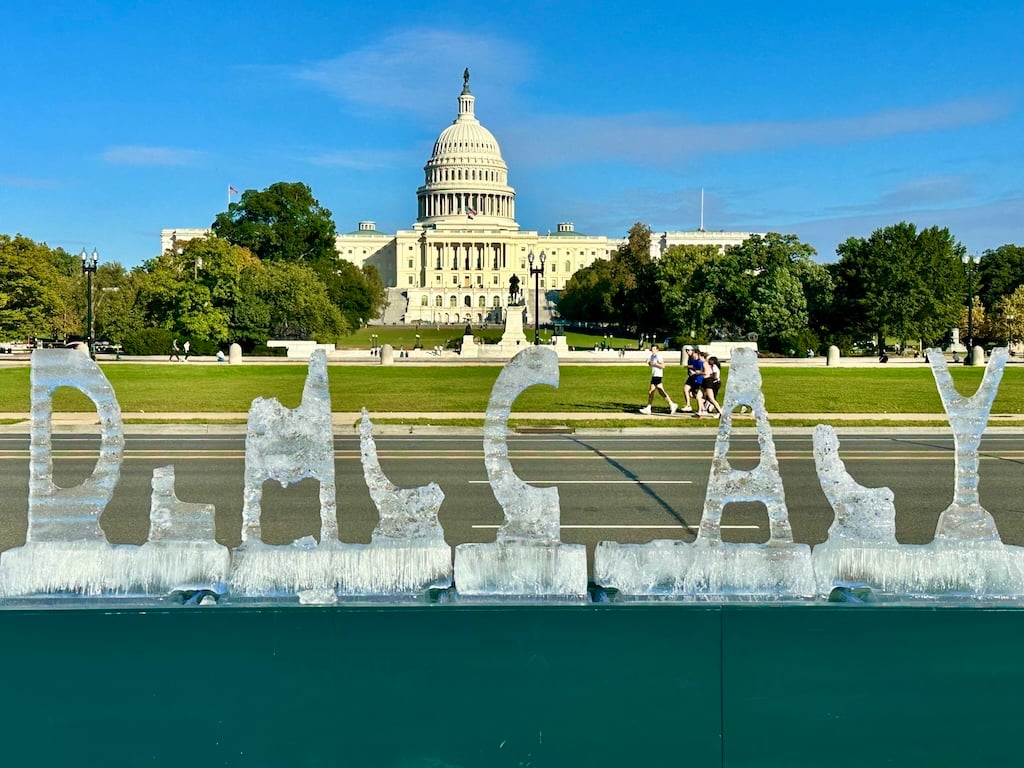Eleanor Holmes Norton is a pillar of DC politics, but recently, with mounting concerns about the octogenarian’s cognition, DC’s non-voting delegate to the House no longer seems so unshakable. Political insiders are debating who could step up in the 2026 election if Norton steps aside—or even if she doesn’t.
Norton, who has held the delegate position since 1991, has long been a well-respected and energetic advocate for DC, using her position to push for DC statehood and autonomy. But the “warrior on the Hill” is now 88, and both her energy and Washington’s confidence in her seem to be waning. She’s no longer so out-and-about at events around DC, and in May, she gave a feeble, stumbling speech at Arena Stage.
In recent weeks, Norton has repeatedly told reporters she plans on running for reelection in 2026, only for her staff to walk back her comments later with statements about how she’s still considering her next move. Norton’s office and campaign team declined Washingtonian’s request for comment on this story.
Challengers are already eyeing Norton’s seat and planning for the 2026 delegate election. I spoke to eight DC politics insiders—including politicians who have run against Norton before, former DC councilmembers, and other current and former elected officials and government workers—about who might run. Here’s what we know about the confirmed candidates, plus lots of rumors about who else might join.
Confirmed Candidates
Four candidates have either told me or publicly announced that they plan to run.
Kinney Zalesne — DNC official
Earlier this month, Kinney Zalesne, a Democrat, became the first candidate to file FEC papers and publicly announce a campaign to challenge Norton. Most recently, Zalesne was a deputy national finance chair of the Democratic National Committee (DNC), but throughout her career, she’s worked in politics, nonprofits, business, and writing. She’s not particularly well-known in the local DC politics scene. The catalyst that brought her winding career to a campaign for delegate? The effect of this administration and Congress on DC’s autonomy and social services. “America is in the greatest danger in my lifetime, and DC is bearing the brunt of it,” Zalesne says. She cites local issues from Congress’ upending of DC’s budget to national issues like cuts to funding for Medicaid and food stamps. Zalesne’s policy priorities, she says, center on “affordability” in health care, housing, and more.
But an individual member of the House has limited influence, and DC’s delegate, who can’t vote, has even less. That’s what makes “relentless coalition building” so crucial to the role, Zalesne says. “When you don’t have formal power, like when you don’t have a vote, it’s all the more important that you know how to bring people to your side. And I know how to do that—that’s what I’ve done my whole career.”
Jacque Patterson — DC State Board of Education President
An Air Force veteran and long-time education official, Jacque Patterson, who announced his candidacy in a press release a couple weeks ago, is jumping in the Democratic primary. During his time on the DC State Board of Education, Patterson has championed more diverse social studies curriculum, sustainable infrastructure in schools, and funding to support college students from DC attending private or out-of-state universities. Unsurprisingly, Patterson says education is one of the primary issue areas of his campaign, along with DC statehood and autonomy.
The social services and programs Patterson hopes to support in Congress—Medicaid, food stamps, funding for schools in low-income areas—hit close to home, he says. “As a child, I relied on those safety net programs. So more than ever, I feel passionate about fighting for this. It’s important that we have somebody in office who has those experiences.” Patterson adds that he’s prepared to focus on relationship-building and lobbying other lawmakers to care about DC. “I don’t think a lot of people outside of the District of Columbia even understand how we’re structured. It’s an education thing,” he says.
Kymone Freeman — Previous DC Statehood Green Party Candidate
Kymone Freeman was Norton’s biggest challenger in 2024, running for delegate as the DC Statehood Green Party candidate. While he won only 7 percent of the vote in the general election, it was more votes than any other challenger amassed against her. Freeman tells Washingtonian that he intends to run again in 2026, but has not yet decided whether to run as a Democrat or again as a DC Statehood Green Party candidate. He says he hopes to receive funding from Leaders We Deserve, an organization founded by activist David Hogg that supports some young progressive candidates’ campaigns. If he needs to register as a Democratic candidate to receive funding, Freeman says, then he’ll do so.
Freeman was one of the earlier voices calling for Norton to “pass the torch,” as his old campaign website declares. “People feel that Eleanor cannot be beaten and that she will die in office, and somehow that’s the best way to honor her. I wholeheartedly reject that, and that was the whole premise of my campaign,” Freeman says. His 2024 candidacy focused on statehood and progressive policy goals around health care, education, housing, and public safety. Freeman is also co-founder of We Act Radio, an independent, progressive local radio station.
Nelson Rimensnyder — Previous Republican Candidate
This won’t be Nelson Rimensnyder’s first time challenging Norton either: the Republican has run for delegate three times, in 2014, 2018, and 2022. Most recently, in 2024, he ran and lost to Democrat Ankit Jain for one of DC’s shadow senator positions. Rimensnyder, who worked on Capitol Hill for much of his career, tells me he plans to run again in the 2026 Republican primary.
Rimensnyder, at 81 and “more than semi-retired,” as he puts it, is hardly the young challenger those calling for Norton to step aside are hoping for (and being a Republican was already not a great starting point for winning Washington’s confidence). But Rimensnyder says he’s only interested in serving one term. “I wouldn’t plan on being there for 30 years,” he says. “And while Republicans control the House and the presidency, I think having a Republican in that seat would benefit the District.” He thinks finding shared ground with other Republicans could help DC toward goals of statehood and greater representation that, at least within the District, are fairly bipartisan.
Rumors, Rumors, Rumors
DC, ever the place for political gossip, has seen plenty of speculation about who else might join the fray. The political insiders I spoke to emphasized that whether or not Norton stays in the delegate race will impact the number of others who run. Most agree that Norton would almost certainly beat her challengers if she runs again, and that this knowledge will deter some from declaring their candidacies unless and until Norton drops out.
Nevertheless, the insiders offered no shortage of ideas on potential candidates. Washingtonian reached out for comment from each of the people named here, though most declined or did not respond to the request. Here are the rumors, roughly in order from more to less likely.
Brooke Pinto — Ward 2 Councilmember
This is easily the name I heard most often from the insiders I spoke to. Brooke Pinto, a Democrat and the Ward 2 councilmember, is not up for reelection until 2028, so she could run for delegate in 2026 and still retain her council seat if she’s not successful. As one of my sources put it, Pinto has “nothing to lose” by running. She’s also been publicly quoted questioning Norton’s ability to continue in her delegate position. Plus, Pinto’s been busy meeting with Washingtonians and organizing and attending events all around DC. Many suspect that she has ambitions for a higher-profile position than councilmember, and these outings beyond Ward 2 could be seen as a prelude to true campaigning.
As a councilmember, Pinto has been particularly vocal on issues around public safety; she’s chair of the council’s Committee on the Judiciary and Public Safety and has spearheaded legislation for harsher punishments on crime.
Christina Henderson — At-Large Councilmember
Like Pinto, Christina Henderson has publicly questioned Norton’s ability to continue in the role, which could indicate her willingness to challenge Norton in a race. A number of my insiders also named Henderson as a likely potential candidate. But unlike Pinto, though, Henderson does have something to lose by running for delegate: The DC Home Rule Charter requires that at least two at-large councilmember seats are held by lawmakers who are not part of the majority political party. Henderson, an independent, would probably have to give up her council seat and re-register as a Democrat to compete for Norton’s office. She might be willing to do that—before serving on the council, Henderson was registered as a Democrat anyway—but it’s a riskier career move for her than it would be for someone like Pinto.
Michael A. Brown — Former At-Large Councilmember
Michael A. Brown was an at-large councilmember from 2009 to 2013, but his political career has been marred with scandal. Brown ran for delegate as an independent in 2024, and his name came up several times in my conversations with sources. He tells me he has not yet decided whether he wants to run again this cycle.
In 2013, Brown pleaded guilty to a felony bribery charge for accepting payments from a business in exchange for his help trying to win government contracting opportunities for the company. He accepted $55,000 from undercover FBI agents posing as part of the business, and was sentenced to more than three years in prison (he was released early, in 2016). Separately, Brown also admitted to concealing the source of tens of thousands of dollars contributed to his 2007 and 2008 bids for a seat on the council. During his time in office, Brown was a champion of social services, leading an effort to expand food stamp eligibility. But now, Brown is perhaps best known for his scandals.
Kelly Mikel Williams — Previous Democratic Candidate
Kelly Mikel Williams came second to Norton in the Democratic primary for delegate in 2024, and is now “contemplating” another run, he tells me. Williams is currently a Ward 8 advisory neighborhood commissioner and has worked for various government offices at both the federal and local level in DC. In 2024, one of his largest campaign issues was homelessness and housing affordability, a personal topic for Williams, who at different times has been unhoused, a renter, or a homeowner.
Janeese Lewis George — Ward 4 Councilmember
A self-described democratic socialist, Janeese Lewis George is serving her second term in the council. She’s not up for reelection until 2028, so like Pinto, she could keep her council seat even if she runs and loses in the 2026 delegate race. Most of the sources I spoke to thought George would be interested in running for a higher-profile position at some point down the line, but they were divided on if that means delegate or mayor. Some compared George to democratic socialist Zohran Mamdani, whose surprise win in the Democratic primary for New York City mayor might, they speculated, make politicians like George more optimistic about their own chances running for major positions in progressive cities.
Robert White — At-Large Councilmember
Almost all the insiders I spoke to said that Robert White has his eye on the mayorship, not the delegate position. The at-large councilmember ran for mayor already in 2022, coming in second to Mayor Bowser in the Democratic primary, and last year, White said he’d be interested in another run. But, some of my sources wondered if White might reassess those ambitions—most doubt he could really beat Bowser—and consider throwing his hat in the race for delegate instead, in light of the growing concern about Norton’s age and especially if she drops out.
Muriel Bowser — Mayor
Don’t get excited here—while Mayor Muriel Bowser might be an easy first guess of a high-profile local politician who could join the race, a Bowser run for delegate seems highly unlikely. Bowser has served as mayor since 2015, and one of her longest-running projects has been to bring the Washington Commanders back to DC. Most of my insiders agree that Bowser will want to see that goal through to completion before she even considers moving on from her position as mayor. The deal to redevelop RFK Stadium and eventually bring the Commanders back is in the spotlight this week, but the stadium won’t open until 2030 (and that’s only if the rest of the process goes according to the mayor’s plan).

